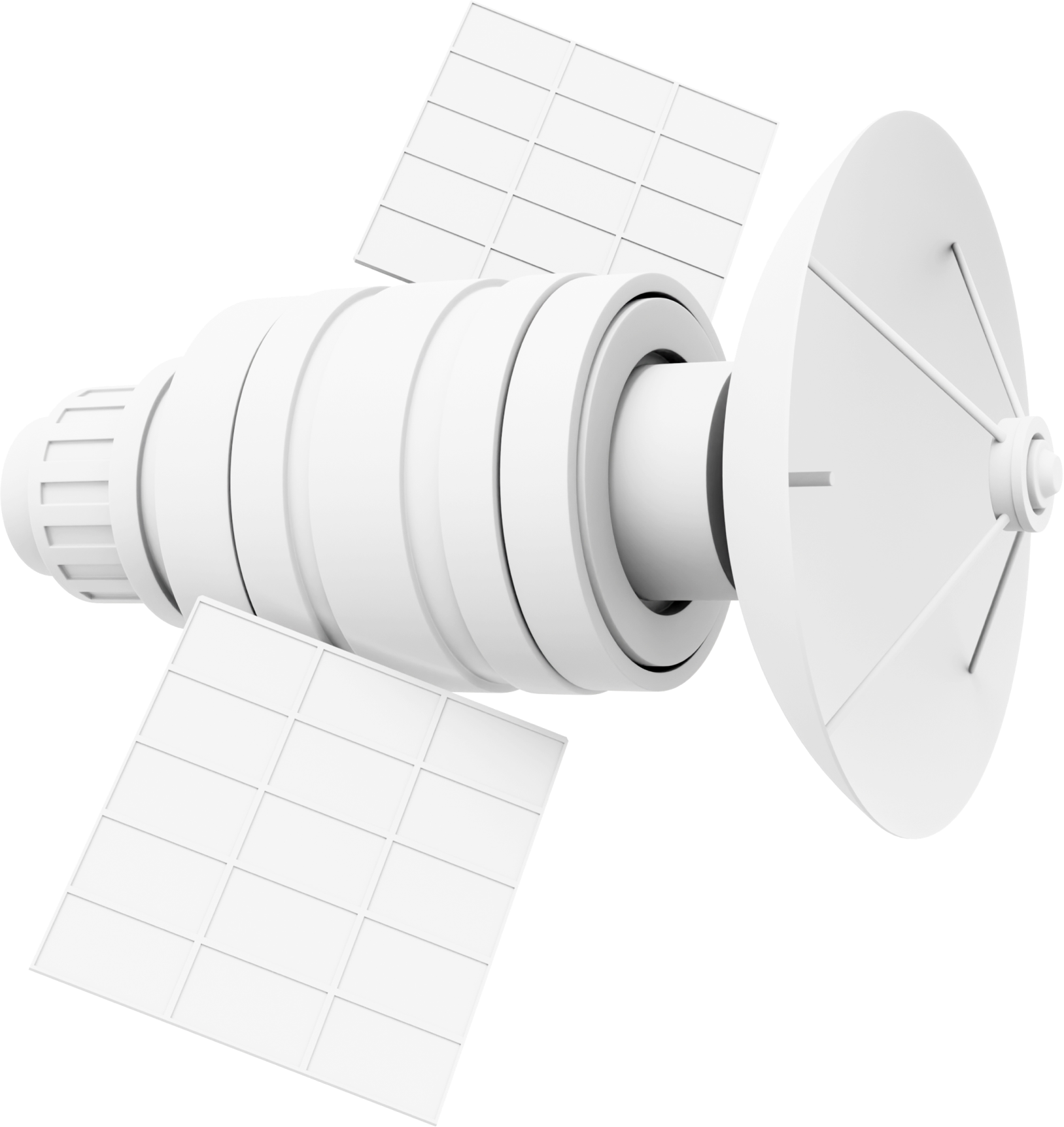Australia Crypto Tax Guide

Сryptocurrency in Australia
Crypto assets are a form of digital assets that you can transfer, store, or trade these assets electronically. They include cryptocurrencies and non-fungible tokens that use cryptography to secure the data and distributed ledger technology to record transactions.
There are no specific Crypto Tax laws. General rules for income tax and capital gains tax apply. The tax authority is called Australian Taxation Office (ATO).
ATO has a crypto asset data-matching program in place starting from 2019. It matches the data from designated service providers with the data provided by the tax payers. This helps the tax office to identify the buyers and sellers of crypto assets and quantify the transactions.
The ATO holds the data from 2014. Thus most likely your crypto transactions are already in their possession.
There are no specific Crypto Tax laws. General rules for income tax and capital gains tax apply. The tax authority is called Australian Taxation Office (ATO).
ATO has a crypto asset data-matching program in place starting from 2019. It matches the data from designated service providers with the data provided by the tax payers. This helps the tax office to identify the buyers and sellers of crypto assets and quantify the transactions.
The ATO holds the data from 2014. Thus most likely your crypto transactions are already in their possession.

Main deadlines to remember and forms to complete
The Australian tax year begins 1 July and ends 30 June the following year. If you are an individual lodging your own tax return, the due date to file is 31 October.
You can file your tax return online, or you can do it on paper and return to the ATO by mail. Two forms will be required, one for income and the other for capital gains.
If you lodge your own tax return and it results in a tax bill, payment is due by 21 November even if you lodge between 1 July and 31 October or after the 31 October.
You can file your tax return online, or you can do it on paper and return to the ATO by mail. Two forms will be required, one for income and the other for capital gains.
If you lodge your own tax return and it results in a tax bill, payment is due by 21 November even if you lodge between 1 July and 31 October or after the 31 October.

Taxes applicable on cryptocurrencies
There are two main taxes to consider: Income tax and Capital Gain Tax. The borderline is the type of transactions. Income tax arises from the earnings you made, like interest received from DeFi transaction, salary in cryptocurrency and similar types. While Capital Gains Tax (CGT) you pay on a profit from disposing of your cryptocurrency. From ATO perspective, cryptocurrency is not money, it’s a property, that’s why CGT is due.
Another step to undertake is to determine whether you are a crypto investor or conducting crypto business.
You will be considered a crypto investor and will be subject to CGT if you buy and sell crypto with the main purpose to keep for a future profit. You will also be able to use the related discounts and exemptions like 50% Capital Gains Tax discount for long-term gains and personal use rule.
If you buy and sell crypto in an organized and business-like manner, you will be considered to run a crypto business and subject to income tax.
Another step to undertake is to determine whether you are a crypto investor or conducting crypto business.
You will be considered a crypto investor and will be subject to CGT if you buy and sell crypto with the main purpose to keep for a future profit. You will also be able to use the related discounts and exemptions like 50% Capital Gains Tax discount for long-term gains and personal use rule.
If you buy and sell crypto in an organized and business-like manner, you will be considered to run a crypto business and subject to income tax.

Income tax
Let’s start with an easy part: you receive income and pay tax on it.
The following events may trigger Income Tax:
The following events may trigger Income Tax:
- Getting paid in crypto (e.g. salary)
- Selling NFTs that you have created
- Airdrops received
- Staking rewards
- DeFi interest
- Rewards from mining
When calculating the resulting income for tax purposes, you need to convert it in AUD at the time of receipt. You will need to declare the above income as Other Income in your tax return.

Capital Gains Tax and CGT event
Now let’s review a more complex issue: Capital Gains Tax. As we already mentioned, it’s the tax you need to pay on a profit that arises from disposing of the cryptoassets.
For the tax purposes dispose means “getting rid” of the assets by any means: selling, swapping, gifting, buying goods and services with cryptocurrency etc. Each of these actions trigger CGT event.
Let’s view on some of the typical CGT events in details:
Example: you bought Coin A for $3,000 and later sell it for $4,000. You'll need to pay tax on the resulting $1,000 gain.
For the tax purposes dispose means “getting rid” of the assets by any means: selling, swapping, gifting, buying goods and services with cryptocurrency etc. Each of these actions trigger CGT event.
Let’s view on some of the typical CGT events in details:
- selling a cryptoasset (cryptocurrency or NFT) for fiat currency, such as the Australian dollar;
Example: you bought Coin A for $3,000 and later sell it for $4,000. You'll need to pay tax on the resulting $1,000 gain.
- gifting a crypto asset. For the tax purposes, gifting means disposing of the assets and thus lead to a CGT event with the same rules as applied to other transactions;
- precisely because of these rules you simply cannot start working on centralized exchanges without verifying your identity;
Example: You bought 1 Coin A for $2000. You exchange 1 Coin A for 10 Coins B. The market value of 10 Coins B is $3000 at the moment. Initially you paid $2000 to acquire Coin A. $3000 - $2000 = $1000 which is your capital gain for tax purposes.
- buy goods or services with a crypto asset;
- sell the crypto you got from mining, staking, airdrops or gifts received
There are other CGT events, such as the loss or destruction of an asset.

How you calculate the amount of tax to pay
If there is a CGT event, you may make either a capital gain or capital loss. If you make a capital gain, you may pay tax on it. If you make a capital loss, it can reduce capital gains you make.
You start by calculating your cost base. It’s the purchase price of your crypto in AUD + costs related to it (e.g. transfer fees).
Cost base = Coin price + Fees
A capital gain or loss is the difference between the AUD equivalent of your crypto at the time you disposed of it and at the time you got it . If the result is more than zero – you have a capital gain for this asset. If it’s less than zero – you have a capital loss and you don’t need to pay the tax and can even reduce your cost base.
Capital gain/loss = your sale price in AUD – your cost base
If you disposed of your crypto otherwise than selling for AUD, you shall use the similar equation by using the data from the reputable exchange on the date of the relevant transaction.
Example: You acquired 1 Coin X for $1000 and paid a $100 transaction fee. Then you sell your Coin for $2000 and paid a fee of $100. The cost base is thus $1100. Capital gain equals to $2000 less the cost base of $1100 + the new fee of $100.
$2000 - $100 – ($1000 + $100) = $800
$800 gain will be taxed in accordance with your applicable Income Tax rate as your Capital Gains. If you want to get a discount, you can wait until a year passes from the date of acquisition and then you will only pay 50% of $800 (long-term Capital Gains Tax discount).
You start by calculating your cost base. It’s the purchase price of your crypto in AUD + costs related to it (e.g. transfer fees).
Cost base = Coin price + Fees
A capital gain or loss is the difference between the AUD equivalent of your crypto at the time you disposed of it and at the time you got it . If the result is more than zero – you have a capital gain for this asset. If it’s less than zero – you have a capital loss and you don’t need to pay the tax and can even reduce your cost base.
Capital gain/loss = your sale price in AUD – your cost base
If you disposed of your crypto otherwise than selling for AUD, you shall use the similar equation by using the data from the reputable exchange on the date of the relevant transaction.
Example: You acquired 1 Coin X for $1000 and paid a $100 transaction fee. Then you sell your Coin for $2000 and paid a fee of $100. The cost base is thus $1100. Capital gain equals to $2000 less the cost base of $1100 + the new fee of $100.
$2000 - $100 – ($1000 + $100) = $800
$800 gain will be taxed in accordance with your applicable Income Tax rate as your Capital Gains. If you want to get a discount, you can wait until a year passes from the date of acquisition and then you will only pay 50% of $800 (long-term Capital Gains Tax discount).
Tax Rates
Although there are two taxed associated with cryptocurrency, there is no separate capital gains tax. You need to report your gains and losses in your Income Tax Return and pay income tax on your capital gains. Please note that all capital gains have to be declared. Even if it's only a small amount.
The individual income tax rate depends on the total income you got during the applicable tax year. For the year 2022 – 2023 you pay tax only if your earnings are above $18,201.
Resident tax rates 2022–23
The individual income tax rate depends on the total income you got during the applicable tax year. For the year 2022 – 2023 you pay tax only if your earnings are above $18,201.
Resident tax rates 2022–23
Foreign resident tax rates 2022–23

Discounts and other means to reduce your tax burden
There are certain ways to reduce your tax burden or even get exempted from tax liability.
- Tax free earnings: You'll only start to pay Income Tax if you receive more than $18,200 in total income per year.
- 50% long-term capital gain discount: If you own your cryptocurrency for more than a year before a CGT event happens, you may be entitled to a 50% CGT discount for that particular asset. It’s thus advisable to double check the date of acquisition of the cryptoasset before disposing of it.
- Personal use asset rule: You may get an exemption from capital gains tax under specific strict rule: you hold cryptocurrency for a short period of time in order to buy an item for personal use. Assets shall be valued under $10,000 AUD.
Example. You want to visit a sport event. Provider suggests a discount when paying in cryptocurrency. You pay AUD to buy crypto and use it at once to buy the ticket. The crypto would be considered a personal use asset because you’ve held it for a short time and acquired it with the sole purposes of buying a ticket for personal use.
Be ready to have enough evidence of your eligibility to this rule in case ATO investigates your tax return on a deeper level.
Example. You keep cryptocurrency for over six months with the intention of selling at a favorable exchange rate. Then you see a promotion that suggests you can buy goods with a discount when paying in crypto. Personal use asset rule is not applicable here because you initially held cryptocurrency as an investment. This transaction is subject to CGT.
Deducting Cryptocurrency Losses. If the amount of money or assets you received as a result of the disposal of your crypto is less than what you paid to get it, you'll get a loss. You can offset your losses and expenses against the taxable income. So always remember to report your losses. You can even carry the loss forward to use in future years. If you lose your private key or your crypto is stolen, you are able to claim a capital loss. However, you will need to prove ownership and that you won't be able to recover the crypto that is lost or stolen.
Remember that even if you only made a loss within the tax year, you still have to report it on your tax return.
Be ready to have enough evidence of your eligibility to this rule in case ATO investigates your tax return on a deeper level.
Example. You keep cryptocurrency for over six months with the intention of selling at a favorable exchange rate. Then you see a promotion that suggests you can buy goods with a discount when paying in crypto. Personal use asset rule is not applicable here because you initially held cryptocurrency as an investment. This transaction is subject to CGT.
Deducting Cryptocurrency Losses. If the amount of money or assets you received as a result of the disposal of your crypto is less than what you paid to get it, you'll get a loss. You can offset your losses and expenses against the taxable income. So always remember to report your losses. You can even carry the loss forward to use in future years. If you lose your private key or your crypto is stolen, you are able to claim a capital loss. However, you will need to prove ownership and that you won't be able to recover the crypto that is lost or stolen.
Remember that even if you only made a loss within the tax year, you still have to report it on your tax return.

Tax exemptions
Although most of the transactions implies taxes, there are still cases when tax does not arise:
- Buying crypto with AUD
- Holding crypto as part of investment
- Getting crypto as a gift
- Receiving crypto as an individual miner
- Transferring crypto between your own wallets
- Purchasing goods and services with crypto under $10,000 under personal use asset rule
- Donating crypto to registered charities with Deductible Gift Recipient (DGR) status
However, when you eventually dispose of any of the crypto you previously possessed, it will trigger CGT event and thus will be subject to CGT.
Don’t forget to keep records of the received crypto. ATO is strict about it – you shall be able to prove the cost base when you dispose of crypto and thus you will need to know the AUD value of the asset.
Moving crypto between different wallets that you own is not considered a CGT event by ATO. Thus you don’t need to pay tax for it. However you will need to keep records of the movement and declare capital gain or loss when you dispose of this cryptoasset.
Don’t forget to keep records of the received crypto. ATO is strict about it – you shall be able to prove the cost base when you dispose of crypto and thus you will need to know the AUD value of the asset.
Moving crypto between different wallets that you own is not considered a CGT event by ATO. Thus you don’t need to pay tax for it. However you will need to keep records of the movement and declare capital gain or loss when you dispose of this cryptoasset.






Specific cases to consider:
NFT’s
NFT’s involve the similar digital technology as other cryptoassets and ATO treats them in the same way as other crypto.
If you buy an NFT as an investment and sell it later, it will be treated as a CGT asset. All the same CGT rules apply when you sell it, exchange it for another NFT or crypto or gift it to someone.
If you hold the NFT for at least 12 months before disposing of it, you may be eligible for a 50% CGT discount. Personal use rule will also be applicable.
Mining
ATO treats individual investors and businessmen differently. Similar rules apply to crypto miners.
Individuals are sometimes called hobby miners by the community. The mined cryptocurrency will be considered as capital asset and tax will arise only upon disposal thereof. Income tax is not applied to the mined coins.
Whereas if you mine as a businessman, you will be treated differently. You will be subject to income tax, eligible to deduct the related expenses against your income.
DeFi transactions
DeFi is a pretty new thing and the rules are not yet specifically designed for each and every occasion. ATO will treat any earned crypto as income, similar to airdrops or staking rewards.
Staking
Staking involves locking your existing crypto assets to validate transactions on the blockchain and create new blocks. As a result you may be awarded with the new coins.
The money value of additional coins is your ordinary income at the time you receive the tokens. You need to declare the income in your tax return as other income.
Airdpors
Airdrops are a marketing tool that distributes crypto assets through a group of people to build their use and popularity.
From ATO’s perspective, airdrops are considered ordinary income at the market value of the tokens on the date you received them. Initial allocation airdrops are however exempted from this rule and do not trigger the income tax.
If the tokens were issued for free, the cost base is zero. If you have paid for them – the amount you paid is your cost base when you dispose of them. However you are eligible or a CGT 50% discount if you hold the asset for more than 12 months.
Crypto Gifts
If you get a crypto asset as a gift, CGT is not applied at the time you received it. However if you later dispose of it, it may be subject to CGT and therefore taxable. You should always keep the records of the market value of the gifted crypto. It will be your cost base in case you decide to sell it later.
NFT’s involve the similar digital technology as other cryptoassets and ATO treats them in the same way as other crypto.
If you buy an NFT as an investment and sell it later, it will be treated as a CGT asset. All the same CGT rules apply when you sell it, exchange it for another NFT or crypto or gift it to someone.
If you hold the NFT for at least 12 months before disposing of it, you may be eligible for a 50% CGT discount. Personal use rule will also be applicable.
Mining
ATO treats individual investors and businessmen differently. Similar rules apply to crypto miners.
Individuals are sometimes called hobby miners by the community. The mined cryptocurrency will be considered as capital asset and tax will arise only upon disposal thereof. Income tax is not applied to the mined coins.
Whereas if you mine as a businessman, you will be treated differently. You will be subject to income tax, eligible to deduct the related expenses against your income.
DeFi transactions
DeFi is a pretty new thing and the rules are not yet specifically designed for each and every occasion. ATO will treat any earned crypto as income, similar to airdrops or staking rewards.
Staking
Staking involves locking your existing crypto assets to validate transactions on the blockchain and create new blocks. As a result you may be awarded with the new coins.
The money value of additional coins is your ordinary income at the time you receive the tokens. You need to declare the income in your tax return as other income.
Airdpors
Airdrops are a marketing tool that distributes crypto assets through a group of people to build their use and popularity.
From ATO’s perspective, airdrops are considered ordinary income at the market value of the tokens on the date you received them. Initial allocation airdrops are however exempted from this rule and do not trigger the income tax.
If the tokens were issued for free, the cost base is zero. If you have paid for them – the amount you paid is your cost base when you dispose of them. However you are eligible or a CGT 50% discount if you hold the asset for more than 12 months.
Crypto Gifts
If you get a crypto asset as a gift, CGT is not applied at the time you received it. However if you later dispose of it, it may be subject to CGT and therefore taxable. You should always keep the records of the market value of the gifted crypto. It will be your cost base in case you decide to sell it later.
Transfer fees when moving crypto between your own wallets
When you make a transaction on a cryptocurrency exchange, you will be most probably charged a fee and you will pay it in crypto. From ATO perspective, this fee is a CGT event similar to a sale and thus subject to capital gains tax.
Example: You bought 1 Coin A. The price of was $5000. You decide to move Coin A from one wallet to another. You're charged a fee of 0.01 Coin A to do so which constitutes $50. $50 is your disposal and you need to report this to the ATO, regardless of the fact you have no capital gain or loss.
Example: You bought 1 Coin A. The price of was $5000. You decide to move Coin A from one wallet to another. You're charged a fee of 0.01 Coin A to do so which constitutes $50. $50 is your disposal and you need to report this to the ATO, regardless of the fact you have no capital gain or loss.
Records you need to keep
You must keep records of each of your crypto transactions and store them for 5 years. The list of the records include:
- The record date of each transaction
- The record of the other party involved (other party’s crypto wallet or your own one)
- The coins’ value in AUD at the date of each transaction
- The purpose of the transaction
Liability
Tax evasion and non-compliance with the tax rules is a serious crime. ATO is very strict about it. One may end up with up to 10 years imprisonment. The penalties are also high and may be dozens of thousands AUD.
Tax evasion and non-compliance with the tax rules is a serious crime. ATO is very strict about it. One may end up with up to 10 years imprisonment. The penalties are also high and may be dozens of thousands AUD.

























